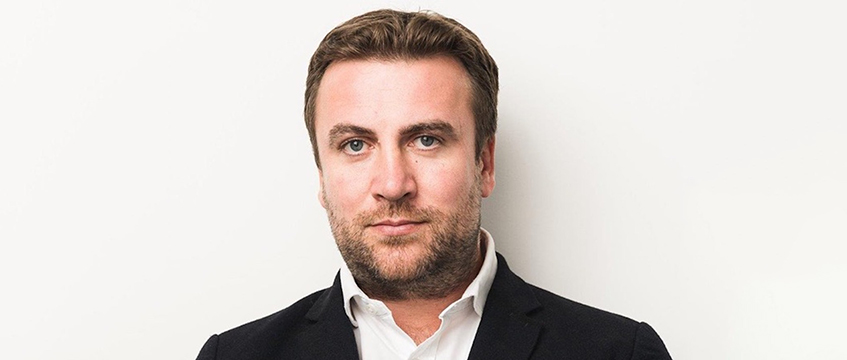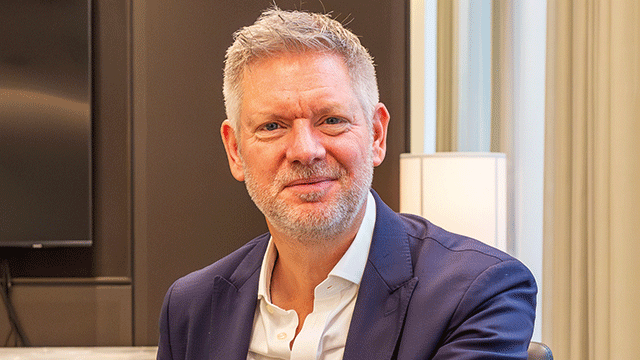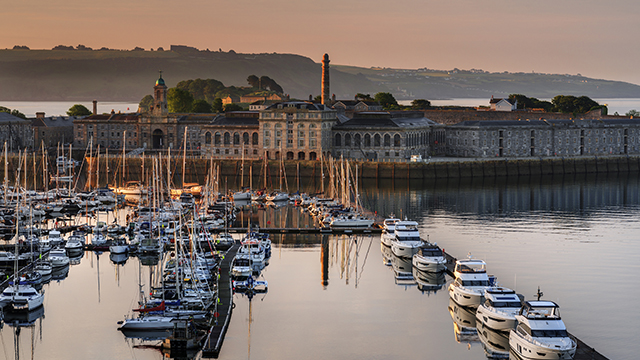Hong Kong buyers search for stability
Hong Kong may still be reeling from more than six months of volatile protests, but its property investors are betting on its resilience and a return to normality – eventually.
“I have confidence in Hong Kong in the long and medium term,” says Justin Chiu, executive director at CK Asset Holdings and ARA Asset Management chairman, who adds that cities in mainland China such as Shenzhen are still unable to match Hong Kong’s infrastructure. “It will take a while for them to overtake Hong Kong.”
Fellow investor Kenneth Gaw, president and managing principal at Gaw Capital, remains “hopeful” despite the ongoing protests, which started over proposed changes to Hong Kong’s extradition laws. “The most important thing is for all the violence to end then we can get back to proper planning and proper dialogue,” Gaw says. “I’m still optimistic.”
Hong Kong may still be reeling from more than six months of volatile protests, but its property investors are betting on its resilience and a return to normality – eventually.
“I have confidence in Hong Kong in the long and medium term,” says Justin Chiu, executive director at CK Asset Holdings and ARA Asset Management chairman, who adds that cities in mainland China such as Shenzhen are still unable to match Hong Kong’s infrastructure. “It will take a while for them to overtake Hong Kong.”
Fellow investor Kenneth Gaw, president and managing principal at Gaw Capital, remains “hopeful” despite the ongoing protests, which started over proposed changes to Hong Kong’s extradition laws. “The most important thing is for all the violence to end then we can get back to proper planning and proper dialogue,” Gaw says. “I’m still optimistic.”
Gaw adds that so long as the city continues to use English law, maintains English as its language of business, and keeps the low tax rates and stamp duty that Hong Kong enjoys over the rest of China, then it “can economically still be prosperous”.
Chiu and Gaw both spoke on panels at the MIPIM Asia conference. In the days following the event – and after the pro-democracy movement’s landslide victory in Hong Kong’s local elections – a landmark property deal for the city was announced, with subsidiaries of Sun Hung Kai Properties winning a bidding war to acquire a 643,100 sq ft site in West Kowloon for a 50-year term.
The site, for which Sun Hung Kai Properties is paying HK$42bn (£4.1bn), is next to the area’s high speed rail station and is close to the university, which became a flashpoint for the protests prior to the local elections.
Deep pockets
The West Kowloon deal will give a much-needed boost to Hong Kong’s fourth quarter investment volumes. During the third quarter of the year, the office and retail investment market all but stalled because of both the protests and China’s trade war with the US, according to Savills.
Transaction volumes plummeted by 57% in July and August following a 48% year-on-year decline in the first six months of the year.
The total non-residential transaction volume of 3,368 in the first eight months of 2019 was half that of the same period in 2018, and looks set to leave 2019 as the worst year for commercial transactions volumes since 1997.
The retail leasing market has also suffered from the unrest and trade war. Shop rents are down 54% from 2013 peaks, according to Savills.
The number of visitors to the city from mainland China fell by 46% year-on-year in October to 2.5m, according to the Hong Kong Tourism Board. Total visitor numbers dropped by almost 44% to 3.3m.
Nick Bradstreet, managing director and head of leasing at Savills in Hong Kong, says the protests have “definitely hit the retail sector badly as Hong Kong has relied very heavily on the mainland shopper”. Burberry, for example, reported a 38% drop in Hong Kong sales during its second fiscal quarter.
Bradstreet adds that some retail landlords, on a case-by-case basis, were looking at rental reductions to help retailers through this difficult period.
Business, not politics
As well as keeping faith in their city’s ability to bounce back from recent troubles, Hong Kong property investors are also looking to bolster their overseas portfolios.
Savills data shows that Hong Kong investors have been pouring money into Singapore, outbound commercial investment rocketing by 4,915% year-on-year to reach HK$10.3bn in the third quarter, a record high for any quarter over the past three years.
And the UK, despite its own political issues, is not entirely off the radar either. CK Assets’ recently completed £2.7bn acquisition of pubs group Greene King is evidence of this. CK Assets acquired the pub chain for a 50% premium, Chiu says, because “it’s a good business, well run, the results are always good and in the UK everybody goes to the pub after work”.
He adds: “It has a good, stable recurring income for the group. We are looking at around a 6-7% return which is very good these days.”
Chiu and colleagues are already on the lookout to add to the firm’s UK pub portfolio. “If you come across any pubs that people want to sell, let me know,” he says. They are also eyeing deals in other spaces.
“We go to the UK and Europe to find good deals,” Chiu says. “Right now, we are looking at some other projects. We bid for Earls Court but we lost out.
“We are also interested in property development. If there are any opportunities, we’ll take it very seriously. So long as we can get a return we’ll be interested. We are businessmen, not politicians.”
Chiu is also chairman of ARA, which earlier this year set up its first direct fund management platform in Europe through a joint venture with London-based Dunedin Property Asset Management.
ARA Dunedin is reportedly embarking on its debut UK investment – buying Canada Pension Plan Investment Board’s 50% stake in Nova in Victoria – and is also looking to establish infrastructure and credit platforms in Europe. On a personal level, Chiu’s family acquired some offices in Germany this year.
Chiu says ARA is expanding into the UK “because we see opportunity”. “The euro and sterling are cheap and property prices are cheap and interest rates are low,” he adds. “It’s the time to invest now as it will come back. It won’t be long.”
Eyes on the UK
Other investors zeroing in on the UK despite Brexit include Paladin Asset Management, whose division Prime Pacific landed in the country earlier this year when it exchanged contracts to acquire its first UK scheme at the 54-home Brill Place in King’s Cross.
Paladin Asset Management executive director Dominic Lee, speaking at MIPIM Asia, said: “London is one of our top locations that we would like to invest [in],” adding that, having secured one site, the company is “looking to do more in the coming years”.
Now, though, Lee and colleagues are finding it harder work trying to invest in the UK. As Brexit nears, Lee says investors seem keener to hold on to their real estate and “wait and see”.
“We’re trying to buy a second project now but it’s very difficult. Sellers don’t really want to negotiate with us – they want to wait for another couple of months.”
For Stanley Ching, senior managing director and managing partner and head of real estate at Citic Capital Holdings, teaming up with partners to invest more in the UK is “definitely a possibility”.
Ching says that the firm, which has invested via Brockton Capital in the past, will look to maintain its relationship with the company, but that in terms of value-add and opportunistic opportunities may look elsewhere. Its investment in the UK will be limited until China’s overseas investment policies are relaxed.
“We have an opportunity to bring in, for example, Chinese capital when there is less control on the foreign investment to other markets including the UK and London,” he says.
“Given the size of the Chinese economy I think inevitably controls on foreign investment will need to be relaxed. It’s just timing.”
Kenneth Leung, vice president at Lai Sun Group, which will start developing The Diamond in the City of London in 2023, adds: “From our perspective, whether there is Brexit or not, the market has come to a point where it has already factored in the outcome.”
Leung says he still sees “good opportunities” in the office sector and considered student accommodation in the UK an attractive prospect, providing “great potential for investors looking for a stable return and yield”, although he admits that his chairman does not “see eye to eye” with him on this as yet.
Leung adds that the UK’s tourism sector could also be a target, including “under-served areas” such as parts of Scotland where the company sees an under-supply of hotels. In December, a joint venture between Lai Sun and Canada’s Burrard International Holdings bought luxury hotel Fairmont St Andrews in Fife.
Leung says that the Brexit vote came as “a big shock to us” but that now the firm simply wants “clarity”.
“We want somehow for the situation to go back to normal and that can only happen after the coming election and hopefully a definite decision on whether to remain or leave,” he adds. “Thereafter, we expect there will be at least two to three years of adjustment by the UK and EU in terms of trading with the rest of the world. Once the equilibrium is re-established, we believe the UK will continue to thrive.”
To send feedback, e-mail louise.dransfield@egi.co.uk or tweet @DransfieldL or @estatesgazette











